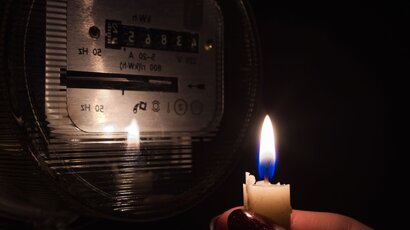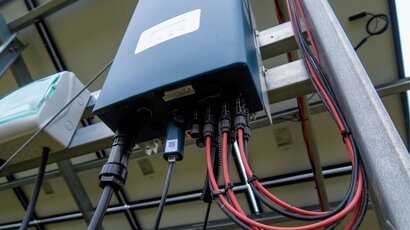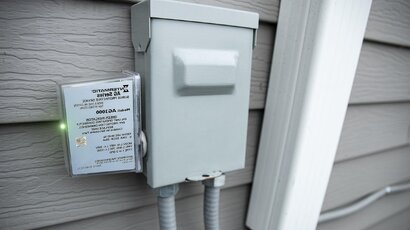Power outages occur regularly in Australia, often stirring up a sense of unease and disruption in our daily lives. These sudden blackouts can be triggered by many factors, ranging from extreme weather events that cause issues with power lines to technical issues within the electricity supply network itself.
The impact of a power outage extends far beyond the mere inconvenience of being left in the dark; it can hinder our ability to work, study, and even preserve food safely. In light of these potential challenges, every household and individual must be well-equipped with the knowledge and tools necessary to navigate a power outage effectively. This comprehensive guide aims to shed light on the essential steps you can take to endure a blackout and prioritise electrical safety throughout the ordeal.
By the time you finish this article, you’ll have a solid action plan ready to tackle power outages. This ensures you and your loved ones can confidently face the situation and come out the other side unscathed.
Preparing for a Power Outage:
![2024 04 Tools For Blackout Tools Blackout]()
Create an emergency kit:
Include flashlights, batteries, first-aid supplies, non-perishable food, bottled water, and a battery-operated radio. Ensure you have a supply of essential medications and a manual can opener for food.
Know how to operate essential equipment manually:
Learn how to manually open and close electric garage doors, gates, or locks. Familiarise yourself with the location of your home’s main power switch and circuit breakers.
Invest in backup power sources:
Consider purchasing a generator or installing a solar system with battery storage. If using a generator, ensure proper ventilation and follow the manufacturer’s instructions to avoid carbon monoxide poisoning. Use heavy-duty extension cords designed for outdoor use, and never overload them.
Keep electronic devices charged:
Ensure your phones, tablets, and laptops are fully charged in case of an outage. Invest in portable power banks or car chargers for backup power.
During a Power Outage
It’s vital to stay informed during a power outage. Use a battery-operated radio or hop online with your mobile device to check local news updates and find out when the power might be back. Don’t hesitate to reach out to your electricity distributor for more information.
Prioritising electrical safety should be a top concern during a power outage. Turn off and unplug electrical appliances and other electrical equipment to prevent damage from power surges when electricity is restored. Avoid using candles as a light source, as they can pose a severe fire hazard, especially when placed near flammable materials or dry grass.
![2024 04 Tree Hitting Power Line Tree Hitting Power Line]()
If you encounter fallen powerlines, keep a safe distance and immediately report them to your utility company.
Conserving energy during a power outage is key. Try to keep your fridge and freezer doors shut as much as possible to hold their temperatures steady. Generally, a fridge keeps food cold for around 4 hours, while a fully-stocked freezer can last up to 48 hours, though this depends on insulation and room temperature.
If it is safe, check on elderly or vulnerable neighbours needing assistance during the outage. Ensure they can access essential items, such as non-perishable food, water, and any necessary medications. Provide them with a backup power source, such as a charged power bank or a small generator, to help them manage the outage more comfortably.
Food Safety During a Power Outage
Maintaining proper food safety during a power outage is vital to prevent foodborne illnesses. Keep your refrigerator and freezer doors closed as much as possible to maintain their temperature.
A refrigerator can generally keep food cold for about 4 hours, while a full freezer can maintain its temperature for up to 48 hours. However, suppose the power outage persists for an extended period. In that case, discarding perishable food items, such as meat, poultry, fish, eggs, and leftovers, exposed to temperatures above 40°F (4°C) for more than 2 hours is essential.
To ensure the safety of your food, use a food thermometer to check its temperature before consuming it. If you need more clarification about the safety of a particular food item, it’s always better to err on the side of caution and dispose of it.
When Power Returns
When the lights come back on, it’s important to take a few precautionary steps to ensure your appliances and electrical gear are safe. Before switching on heavy-duty appliances, let the electrical system settle a bit to prevent overloading.
![2024 04 Checking Breaker Box Blackout Checking Breaker Box Blackout]()
Gradually turn on appliances and other electrical equipment, starting with essential items and progressing to less critical ones. This approach will help prevent power surges that could damage your electrical devices.
Inspect your electrical equipment, appliances, and cables for signs of damage caused by the outage or power surges. Contact a licensed electrician for assistance if you suspect any electrical issues or damage. They can thoroughly assess the situation and make necessary repairs or replacements to ensure your electrical system’s safety and proper functioning.
Remember to check your safety switches, including circuit breakers and RCDs (Residual Current Devices), to ensure they function correctly. Press the test button on each safety switch to verify that it operates correctly and resets properly. If any safety switch fails to operate as intended, contact a licensed electrician to diagnose and resolve the issue.
Finally, take some time to restock your emergency kit, replacing any items used during the power outage. This will ensure that you are well-prepared for future emergencies. Consider adding items like proper safety containers for storing essential documents, medications, or other valuable items that may be sensitive to power surges or extreme temperatures.
Navigating Power Outages with Preparation and Safety in Mind
Dealing with power outages requires preparation, knowledge, and a focus on electrical safety. By creating an emergency plan and kit, staying informed during an outage, and following proper procedures when power returns, you can minimise the impact of power disruptions on your daily life. Always prioritise safety and consult with a licensed electrician for any electrical work or concerns. Stay prepared and stay safe!
For further information on electrical safety during power outages, consult your local utility company or visit the Energy Safe Victoria website.
If you live in Melbourne and need help with electrical safety, repairs, or upgrades, get in touch with WP Electricians. Their skilled and licensed team is committed to delivering top-notch services to keep your home’s electrical system safe and reliable.






